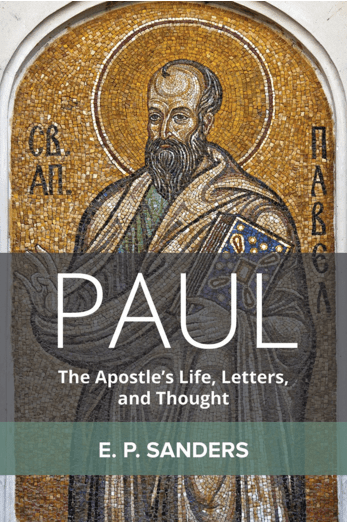The New Perspective argues that since Judaism was not a works religion, Paul was not opposing “works” righteousness. If everything in the old perspective flows out of the view that humans are merit-striving and if everything flows from a gospel that assaults human striving by replacing it with grace and faith, and if the new perspective is more accurate, then, well, lots of Paul’s theology deserves a more careful look.
 Thanks to the fine efforts of James Beilby and Paul Rhodes Eddy, one of the principals in the entire issue, J.D.G. Dunn, describes for us the “new perspective on justification” in the book Justification: Five Views (Spectrum Multiview Books).
Thanks to the fine efforts of James Beilby and Paul Rhodes Eddy, one of the principals in the entire issue, J.D.G. Dunn, describes for us the “new perspective on justification” in the book Justification: Five Views (Spectrum Multiview Books).
Questions: Is the “covenant of works” in Reformed theology based on the old view of “works of the law” in Christian thinking? When you hear people criticizing the “new perspective” what are they saying? Do they reflect these four emphases of J.D.G. Dunn?
Jimmy Dunn doesn’t speak for every new perspective proponent; the new perspective has a variety of viewpoints. But this also means that many who say “the new perspective says this…” is almost certainly wrong. (Unless they are talking about a new perspective on Judaism; on that most agree.)
So, let’s learn to listen to what the principals are saying.
Dunn says the “new” perspective is not really new; it’s something Paul himself defended. What is “new” is that a neglected feature of Paul’s teaching has been neglected. Get this, too: the new perspective is not opposed to the old perspective. [Those who think this way are creating tensions that may not even be there.] The new perspective assumes the old perspective and seeks to make it better.
Dunn examines four themes:
1. A new perspective on Judaism. The “old” perspective got this wrong and saw Christianity replacing Judaism, saw Paul and Jesus over against Judaism, and then Luther’s law vs gospel construct became Judaism vs Christianity. So the old framework made Judaism (even the Old Testament at times) the polar opposite of all things Christian. The framework of the new perspective is that Judaism was covenant nomism, election is the grace and law is the way the elect are to live in obedience. Sacrifices took care of sin. And “righteousness” was a relational term (not just a legal term); it had to do with living faithfully in a given relationship. God’s righteousness thus means God is faithful according to the terms of the covenant. What Sanders overplayed was “covenant” and he did not adequately appreciate the diversity of nomisms in Judaism.
2. Paul’s mission is the context for his teaching on justification. Without discussing the classic view of justification (declared right before God as an act of grace), Dunn observes that one of the fundamental ideas of Paul is the inclusion of Gentiles in the one family of God. And if you read the NT carefully you see that justification emerges in Galatians and Romans, the two letters where Paul is discussing the inclusion of Gentiles and probing how God is faithful to his covenant in doing that. And this: “… the ‘all’ for Paul meant not just everyone or anyone. The ‘all’ meant specifically Gentile as well as Jew, Jew as well as Gentile” (188).
3. What Paul means by “works of the law.” Big one: Dunn argues works of the law refers to doing what the Torah says, but that this expression takes on special character in Paul: it refers especially to those works of the law that separated Jews from Gentiles (circumcision, clean and unclean laws, and Sabbath). Frequently Paul’s works of the law refer to those actions that are preventing the inclusion of Gentiles in the one people of God alongside, and equal to, Jews. In other words, this point is connected to #2 point.
In Michael Horton’s construct, which appeals often enough to the “covenant of works,” appears to me to be rooted in a view of Judaism (and therefore humanity) that the new perspective has successfully challenged.
4. The whole gospel of Paul issue. Dunn doesn’t opt as much for the faithfulness of Christ in “faith of Christ,” he discusses Paul’s view of the law (which is too wooden and stark in Luther), and judgment by works — as well as participation in Christ (and he’s against making anything the one central point).
I read the responses and the best is Bird’s: he wondered aloud if Dunn had said this way back in the 80s we might not have ever had the kerfuffle!
Well, I do have to ask if the new perspective on Judaism has not completely undercut the radicalizing of works of the law into a portrait of humans as merit-seeking, self-righteousness-making depraved humans.











